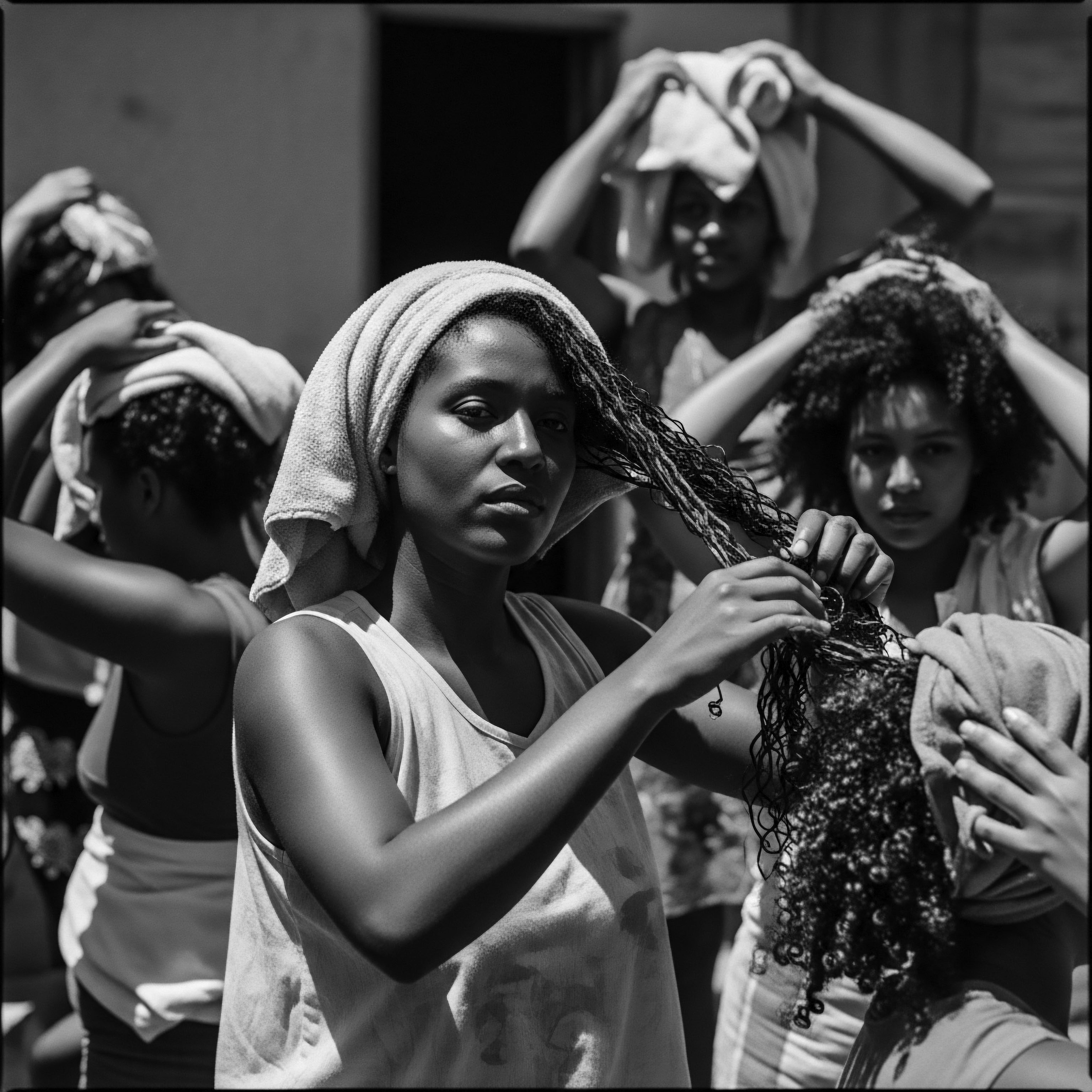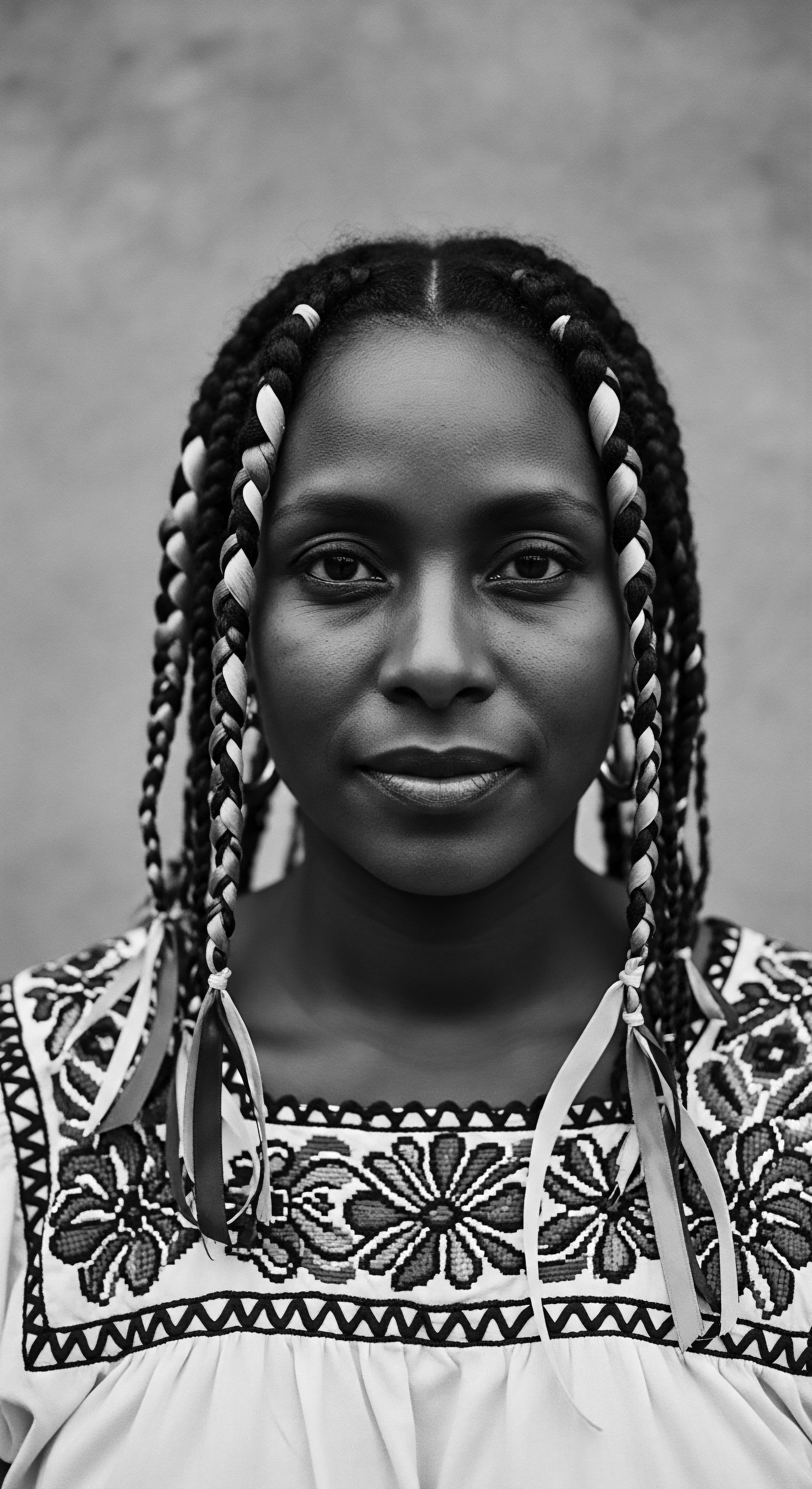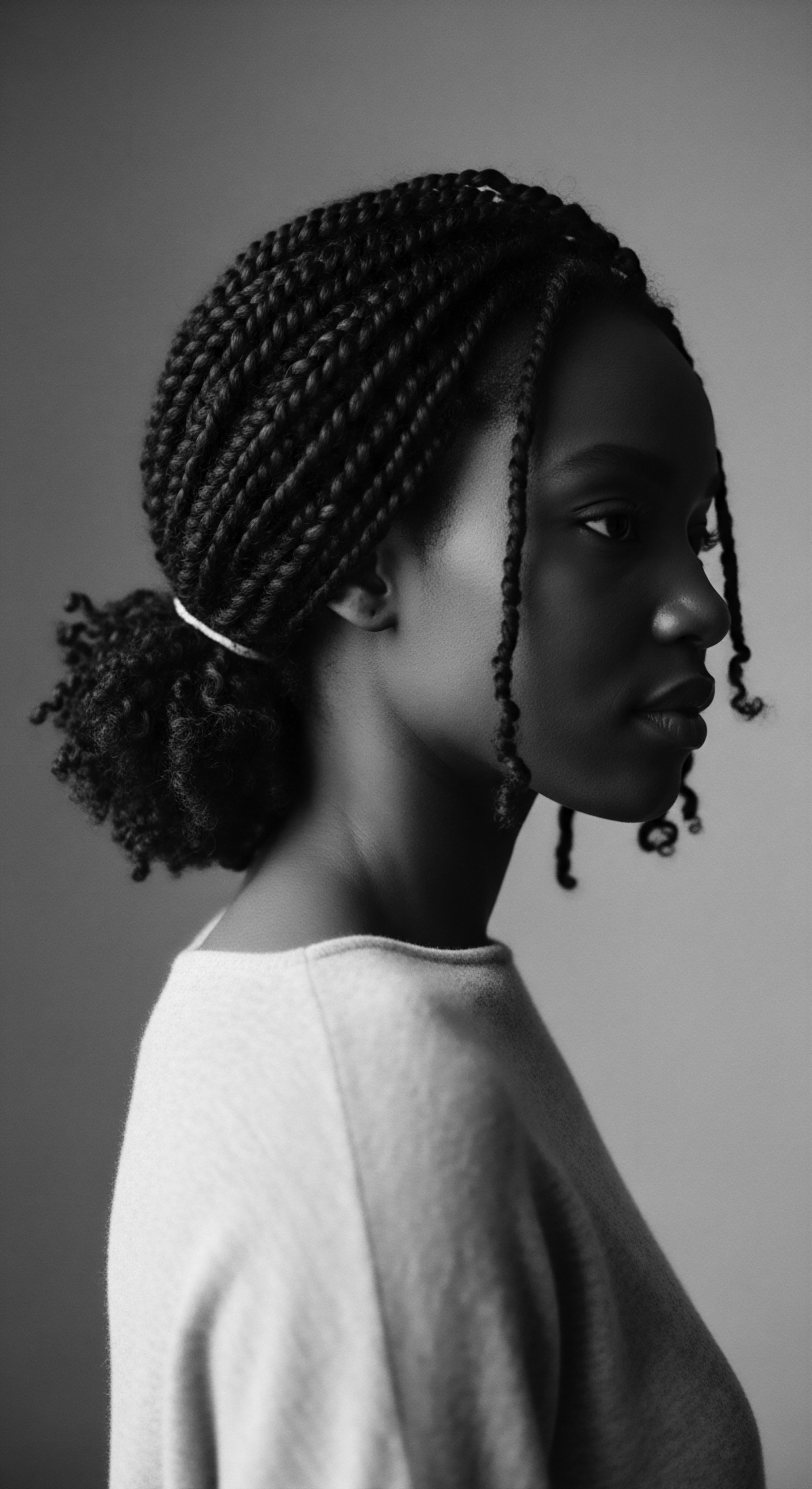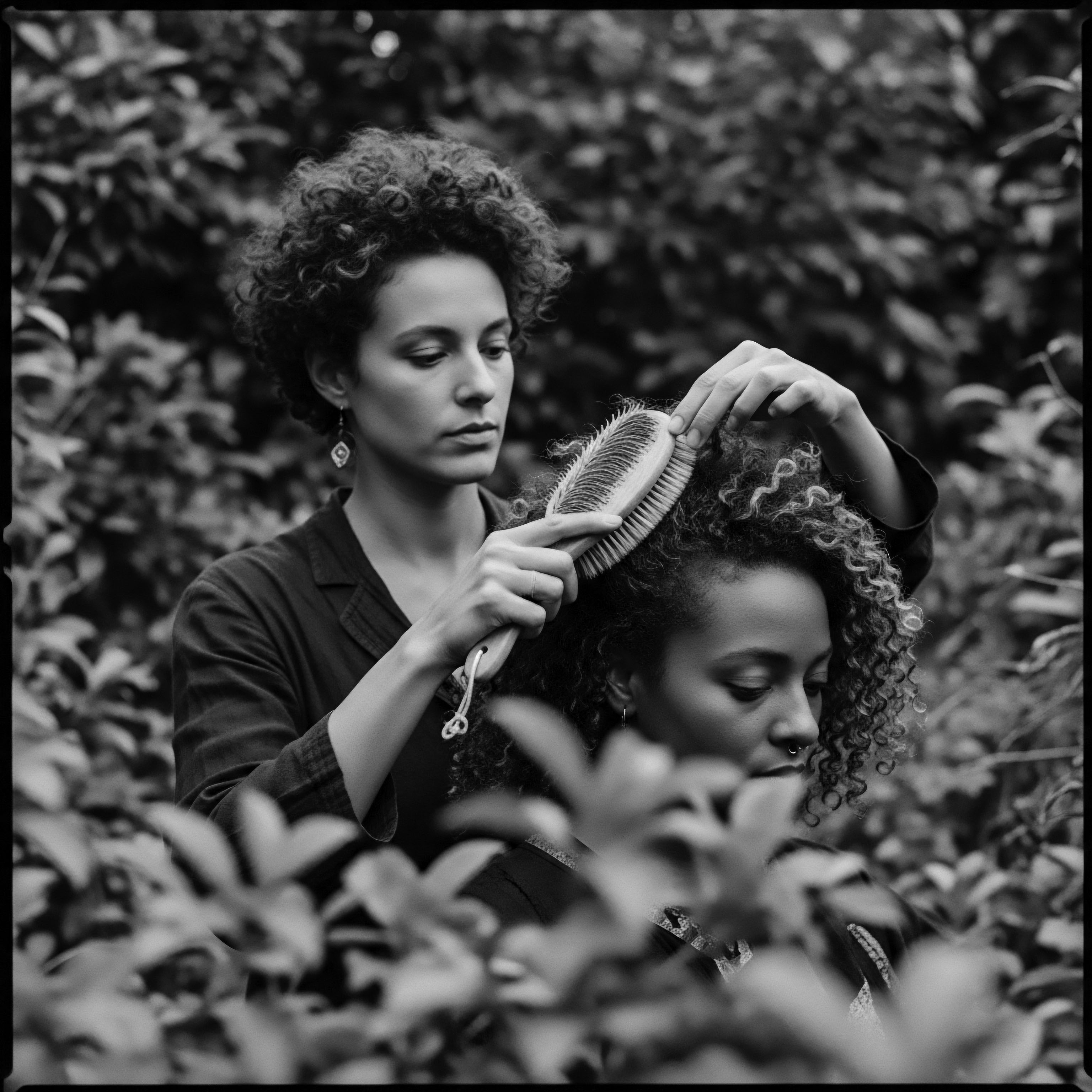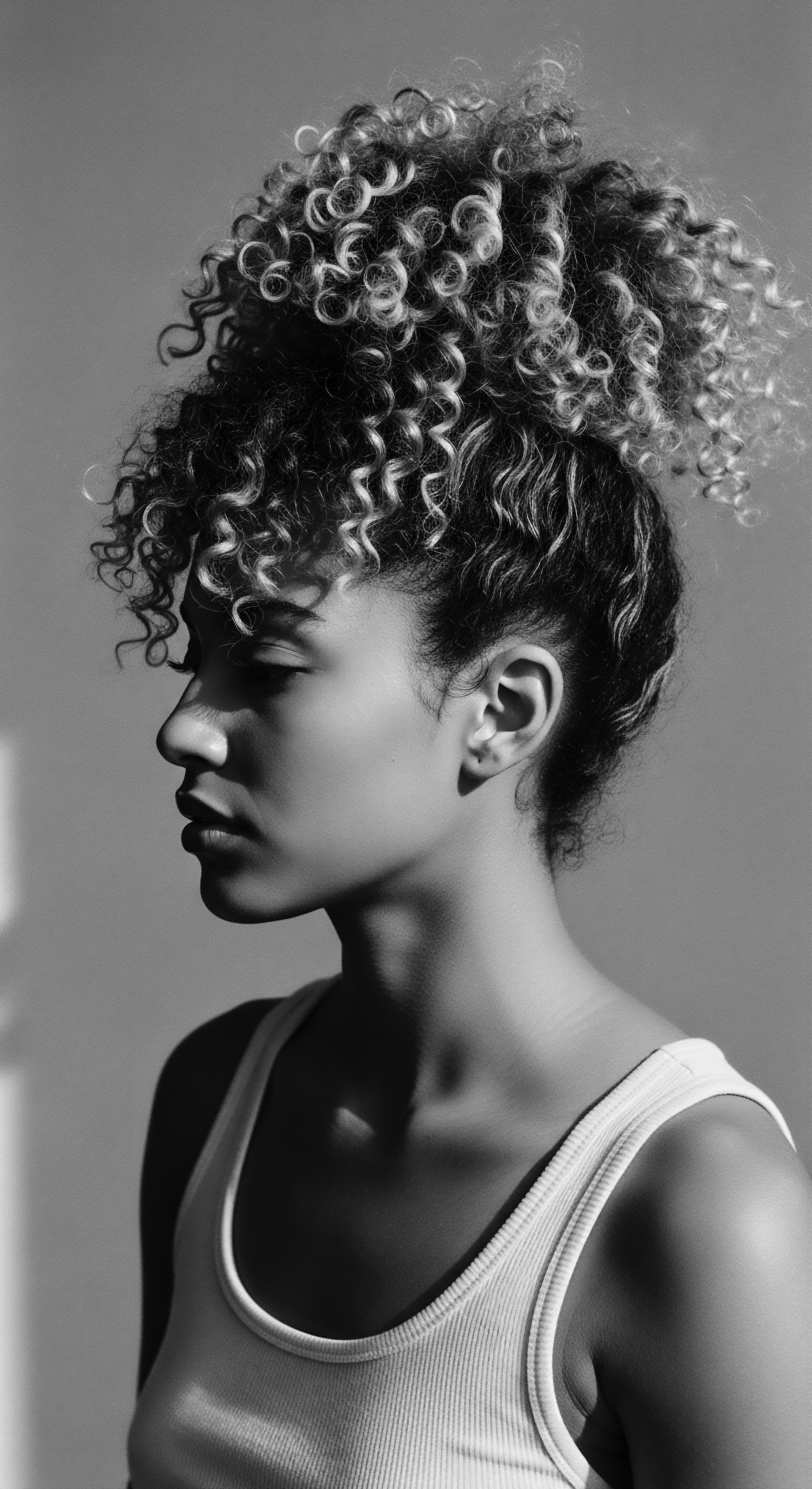
Fundamentals
The name Annie Turnbo Malone stands as a guiding star in the ancestral lineage of textured hair care, a luminary whose vision transcended mere commerce. Her life’s work, centered around the creation of the Poro Company, provides a foundational understanding of how self-care became a pathway to self-determination within Black communities during the early 20th century. Her approach to hair care was not simply about styling; it was a deeply rooted practice that acknowledged the unique biology and cultural significance of Black hair, offering products and education that empowered individuals to nurture their natural beauty and secure economic independence.
At its initial conception, the meaning of Annie Turnbo Malone’s contribution rests in her pioneering spirit. She was among the first to systematically develop and market hair care products specifically for African American women, addressing a glaring absence in the mainstream beauty market. Her products, like the renowned “Wonderful Hair Grower,” were formulated to promote scalp health and encourage hair growth, a departure from the harsh, damaging treatments prevalent at the time. This dedication to wholesome hair wellness resonated deeply with women seeking gentle, effective solutions for their textured strands.
Annie Turnbo Malone’s enduring legacy is rooted in her pioneering efforts to create hair care solutions that honored the unique needs of Black hair, establishing a path for self-care and community empowerment.
Her business model, which relied on direct sales through a network of trained agents, was revolutionary. These agents, primarily Black women, brought her products and the knowledge of proper hair care directly to homes and communities, creating a system of support and economic opportunity where few existed. This network extended far beyond product distribution; it became a vehicle for sharing wisdom, building sisterhood, and fostering a collective sense of worth. The significance of her work lies not only in the products she offered but also in the dignified livelihoods she created for thousands, laying a groundwork for financial autonomy within a racially segregated society.
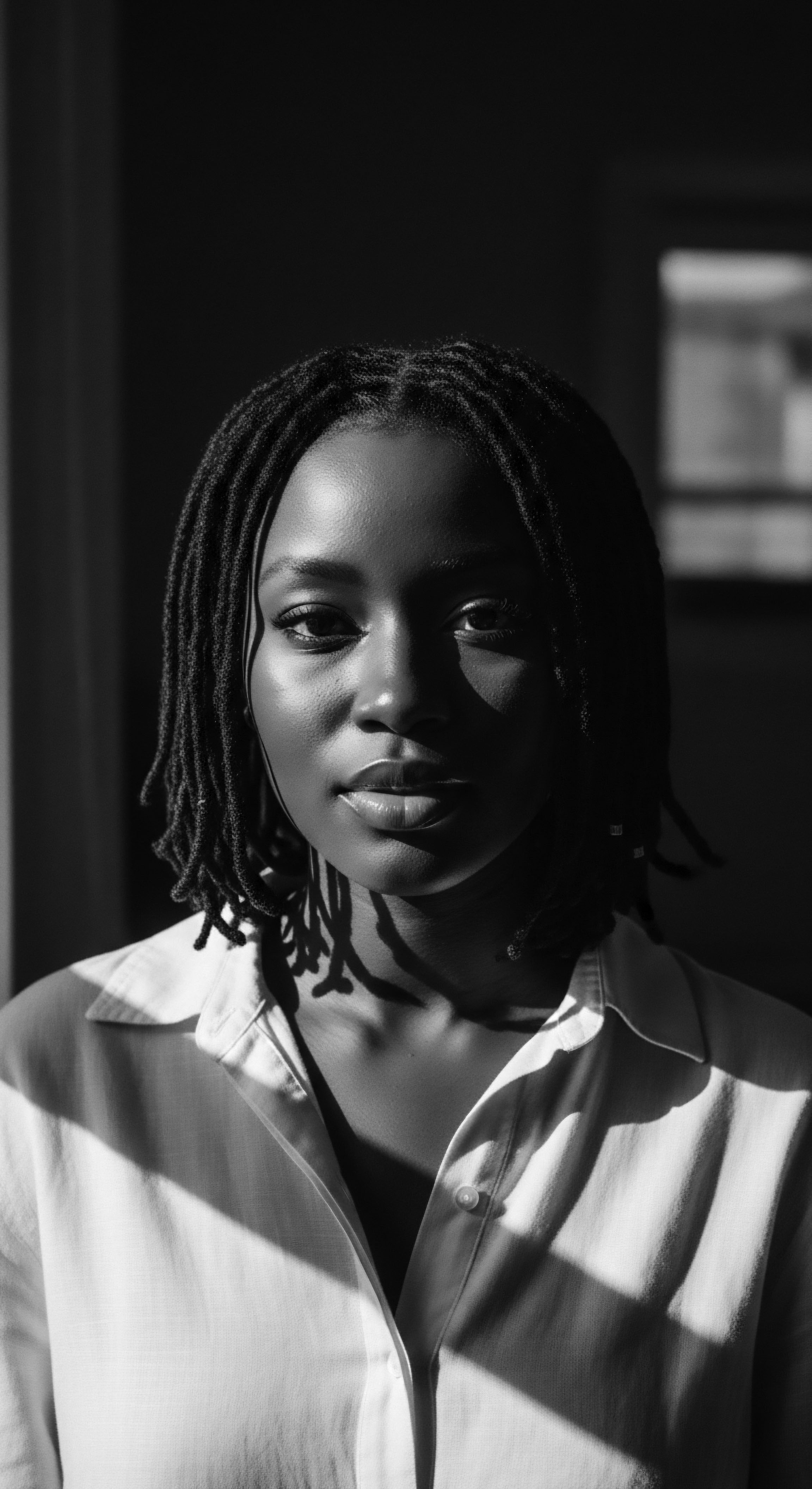
Early Beginnings and Intent
Annie Turnbo Malone, born in Metropolis, Illinois, in 1869, understood from a tender age the profound connection between appearance and societal standing for African American women. Orphaned young, her early fascination with chemistry and hairdressing, often practicing on her sisters’ hair, ignited a passion for creating solutions that would genuinely improve hair health. She witnessed the widespread damage caused by common practices of the era, which often involved harsh chemicals or animal fats that harmed the scalp and hair follicles. Her intention was clear: to offer a kinder, more effective approach that celebrated the inherent beauty of textured hair.
- Formulation ❉ Malone experimented with various compounds, developing products that prioritized scalp health and hair vitality, a stark contrast to the damaging alternatives available.
- Distribution ❉ Initially, she sold her “Wonderful Hair Grower” door-to-door, offering free treatments to demonstrate the efficacy of her gentle preparations.
- Community ❉ Her early success in Illinois prompted a move to St. Louis in 1902, a strategic relocation that positioned her within a growing urban Black community, ready to receive her message of hair wellness and economic uplift.
This initial phase of her enterprise established a critical foundation. It was a period where she honed her formulations and perfected her direct-sales method, which would later become a hallmark of her sprawling business. The early days were marked by a dedication to meeting a real need within her community, offering a product and a service that resonated with the lived experiences of Black women navigating a world that often devalued their natural appearance.
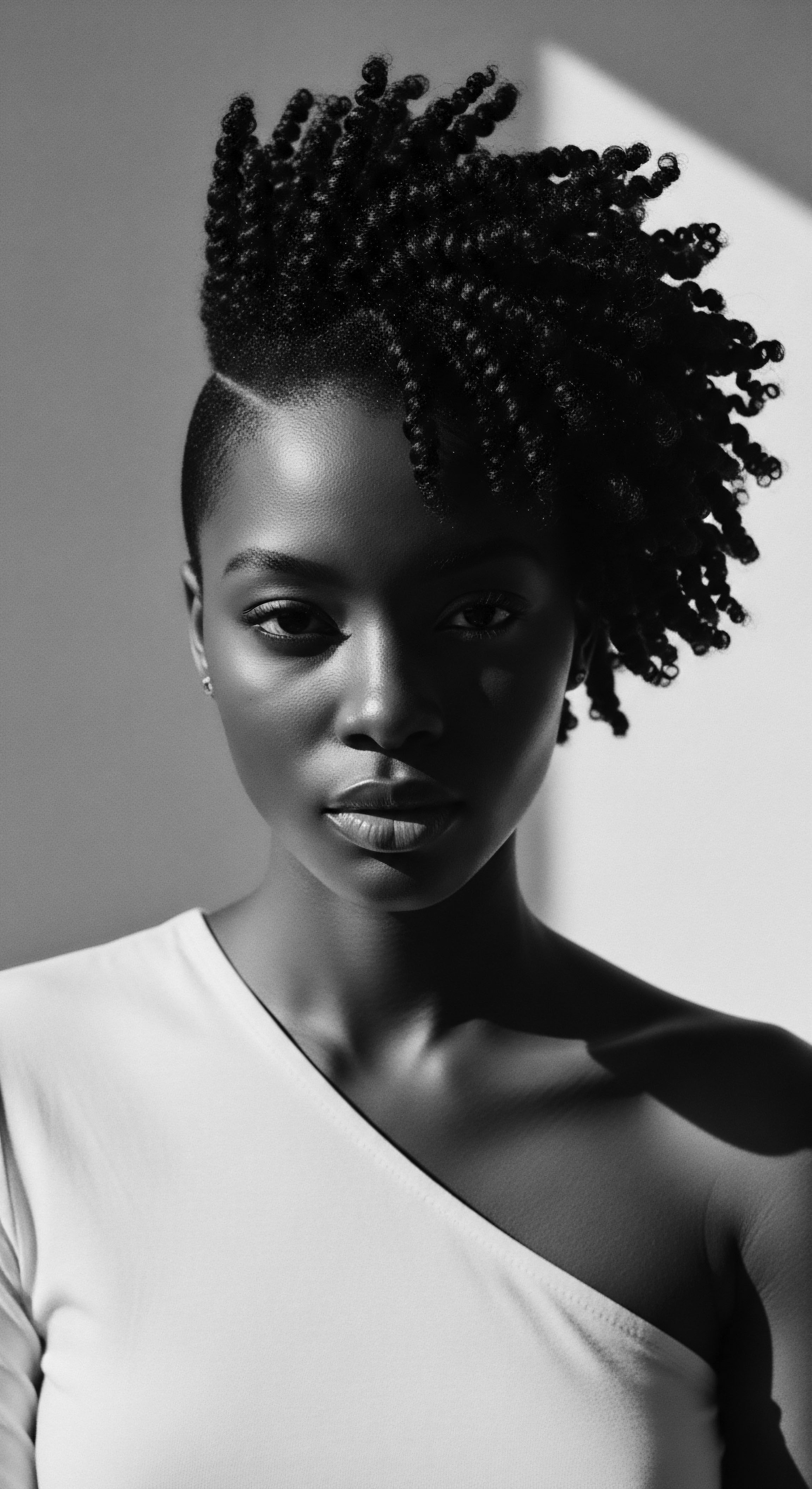
Intermediate
The intermediate understanding of Annie Turnbo Malone’s contribution moves beyond the simple definition of her products to encompass the sophisticated system she built, one that transformed hair care into a powerful engine for social and economic change. Her Poro Company, named after a West African term signifying physical and spiritual growth, became a beacon of self-sufficiency and collective advancement. The establishment of Poro College in St. Louis in 1918 stands as a testament to her expansive vision, serving as a comprehensive institution that educated, employed, and uplifted thousands of Black women across the nation and beyond.
Poro College was more than a cosmetology school; it was a vibrant community center, a nexus for social and cultural gatherings, and a vital source of employment during a period of pervasive racial and gender discrimination. The curriculum extended beyond hair styling, encompassing personal grooming, etiquette, and business acumen, equipping students with a holistic set of skills for success. This approach underscores her belief that improving hair health and appearance could contribute to a woman’s overall well-being and social standing. The educational dimension of Poro College solidified its meaning as a vehicle for empowerment, providing Black women with the tools to navigate a challenging society with dignity and economic agency.
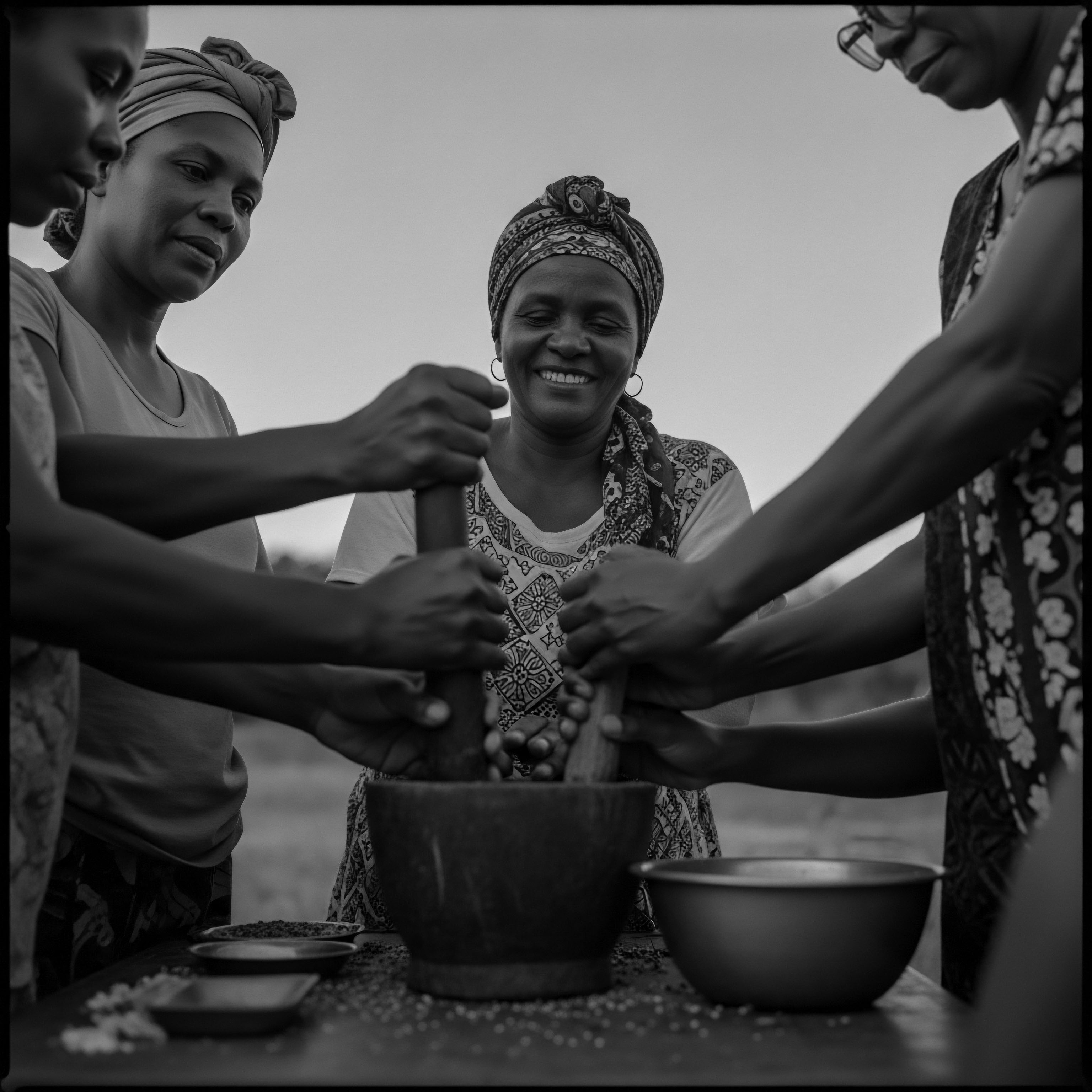
The Poro System and Its Reach
The Poro System, as developed by Annie Turnbo Malone, represented a complete philosophy of hair care and business. It was a structured approach that trained agents not only in the application of her products but also in the art of sales, customer service, and independent entrepreneurship. These agents, often referred to as “Poro agents” or “hair culturists,” were instrumental in disseminating her methods and products widely. Their work provided a direct connection to communities that mainstream beauty companies ignored, building trust and loyalty through personalized service and shared cultural understanding.
The geographic reach of the Poro Company was truly remarkable for its time. Through her network of agents and eventually through Poro College branches, Malone’s influence spread across the United States, reaching into the Caribbean and Africa. This expansion demonstrated a deep understanding of the global diaspora of Black people and the universal need for culturally relevant hair care solutions. The company’s growth mirrored a burgeoning awareness of Black identity and self-worth, with hair serving as a tangible symbol of this collective journey.
Annie Turnbo Malone’s Poro system transcended mere product sales, establishing a comprehensive ecosystem of education and economic opportunity that resonated deeply within Black communities, offering pathways to dignity and financial freedom.
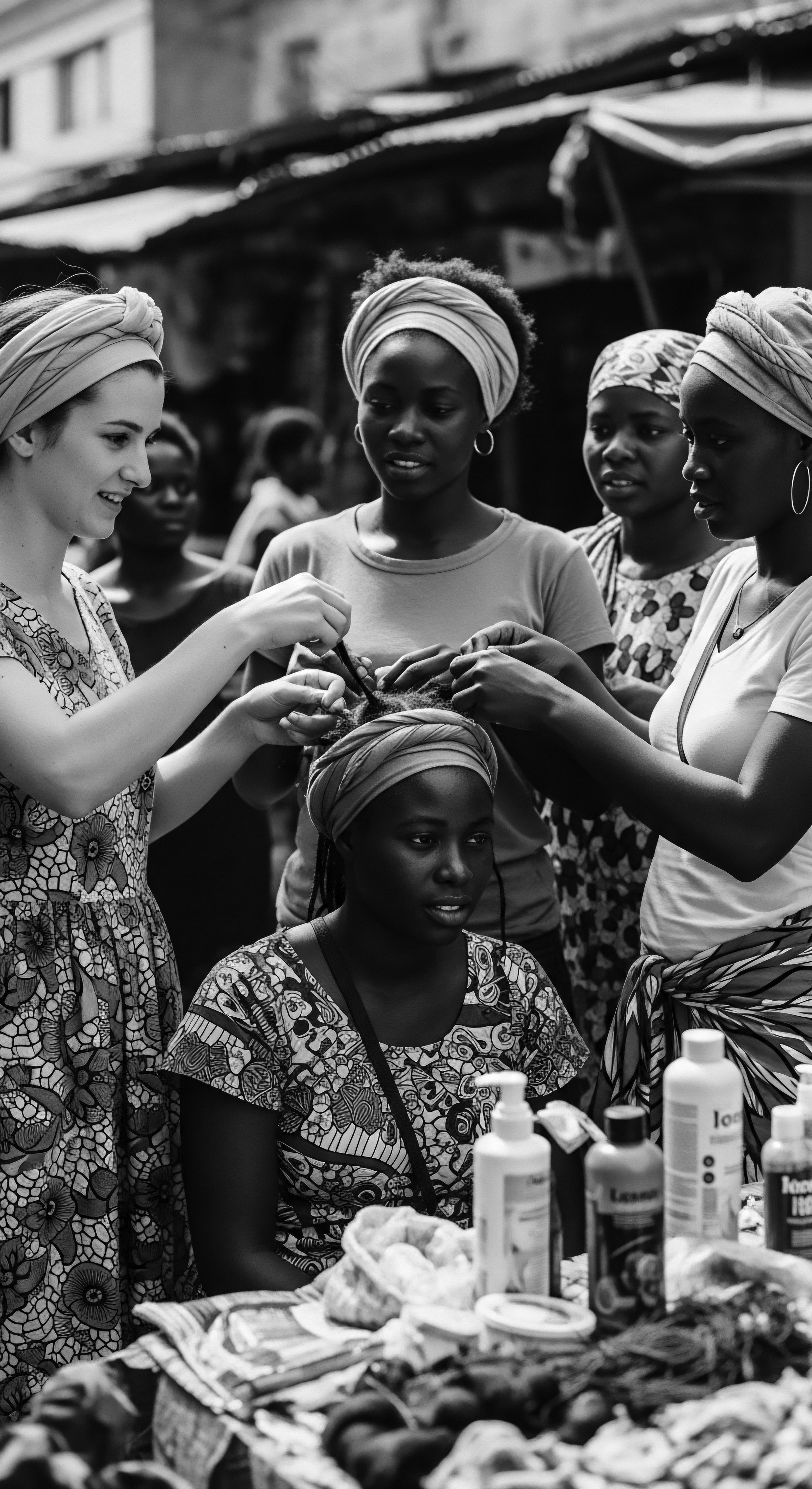
Impact on Black Women’s Economic Autonomy
The impact of Annie Turnbo Malone’s enterprise on Black women’s economic autonomy cannot be overstated. In an era where opportunities for Black women were severely limited by systemic racism and sexism, Poro offered a viable and respected path to earning a living. Many Poro agents, ranging in age from 16 to 80, found not only employment but also a sense of purpose and belonging.
The average Black woman might earn one to two dollars a week in other occupations, yet Poro agents could earn significantly more, often three to five dollars a week, with some reaching up to one hundred dollars weekly. This financial uplift allowed women to support their families, invest in their communities, and gain a measure of independence previously unattainable.
This economic liberation was a direct outcome of Malone’s vision, which understood that hair care was not a superficial pursuit but a fundamental aspect of identity and self-presentation. By providing tools and training, she enabled Black women to take control of their own economic destinies, a powerful act of resistance against prevailing societal constraints. The very act of caring for one’s hair, traditionally a communal and intimate practice within African and diasporic cultures, was transformed into a dignified profession, honoring ancestral wisdom while forging new paths for prosperity.
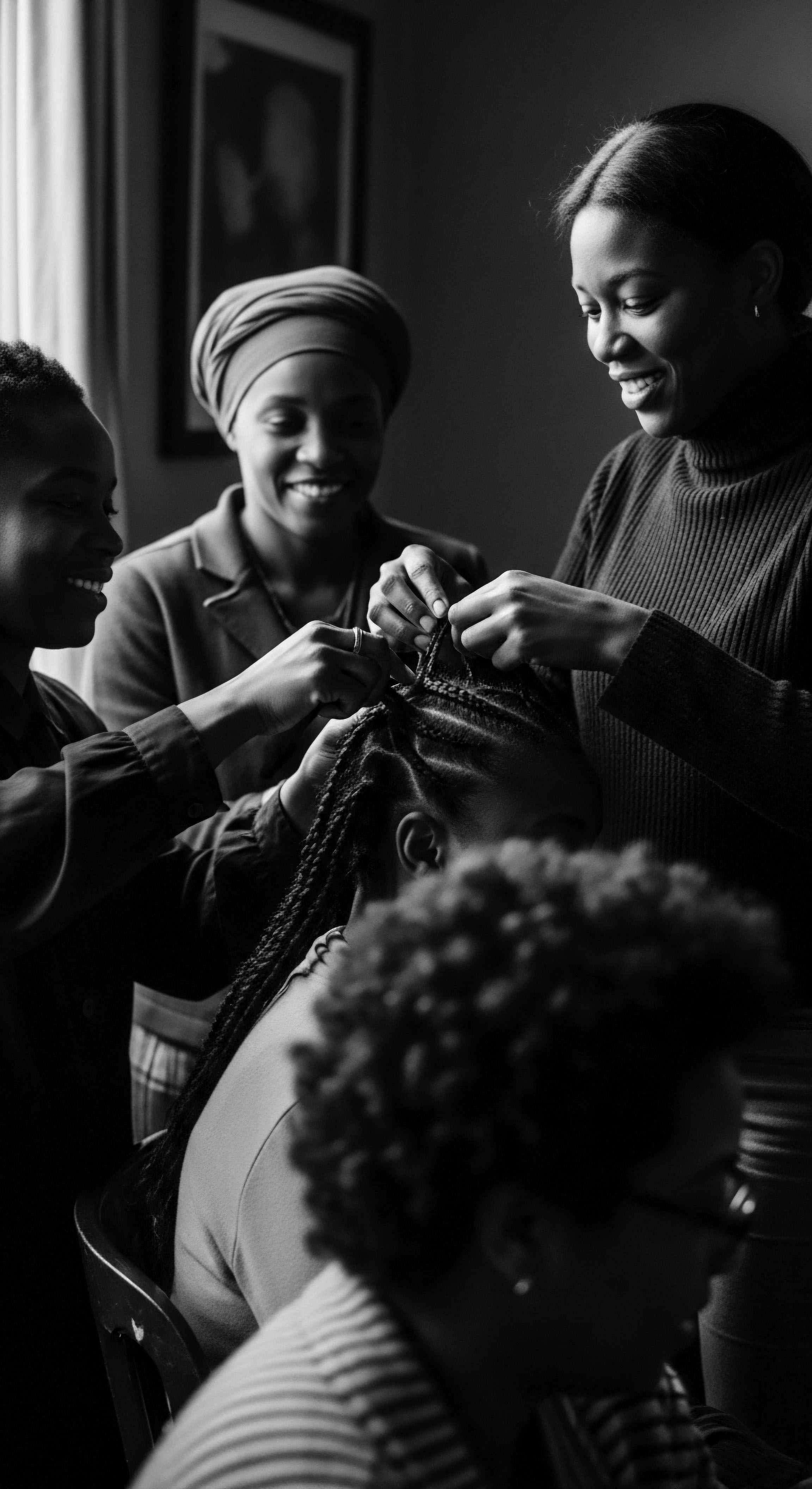
Academic
The academic definition of Annie Turnbo Malone transcends a simple historical account, positioning her as a central figure in the socio-economic and cultural liberation movements of the early 20th century, particularly as these movements intersected with the evolving understanding and care of textured hair. Her contributions are not merely entrepreneurial successes; they signify a profound re-centering of Black beauty standards and a strategic dismantling of economic barriers, all grounded in an ancestral reverence for hair as a marker of identity and resilience. Malone’s enterprise, Poro, represents a complex adaptive system that responded to the unique needs of a marginalized population, providing solutions that were simultaneously biological, economic, and deeply cultural.
The meaning of Malone’s work, viewed through an academic lens, involves an exploration of intersectionality ❉ how race, gender, and class converged to shape the experiences of Black women in the United States. She operated within a society that actively denied Black women access to capital, education, and dignified employment, while simultaneously disparaging their natural hair textures. Malone’s response was not to assimilate but to innovate, creating a parallel economy and educational infrastructure that affirmed Black identity and built Black wealth. Her understanding of chemistry, coupled with her intuitive grasp of cultural needs, allowed her to formulate products that were not only effective but also culturally appropriate, a radical departure from the often-damaging practices promoted by a Eurocentric beauty industry.
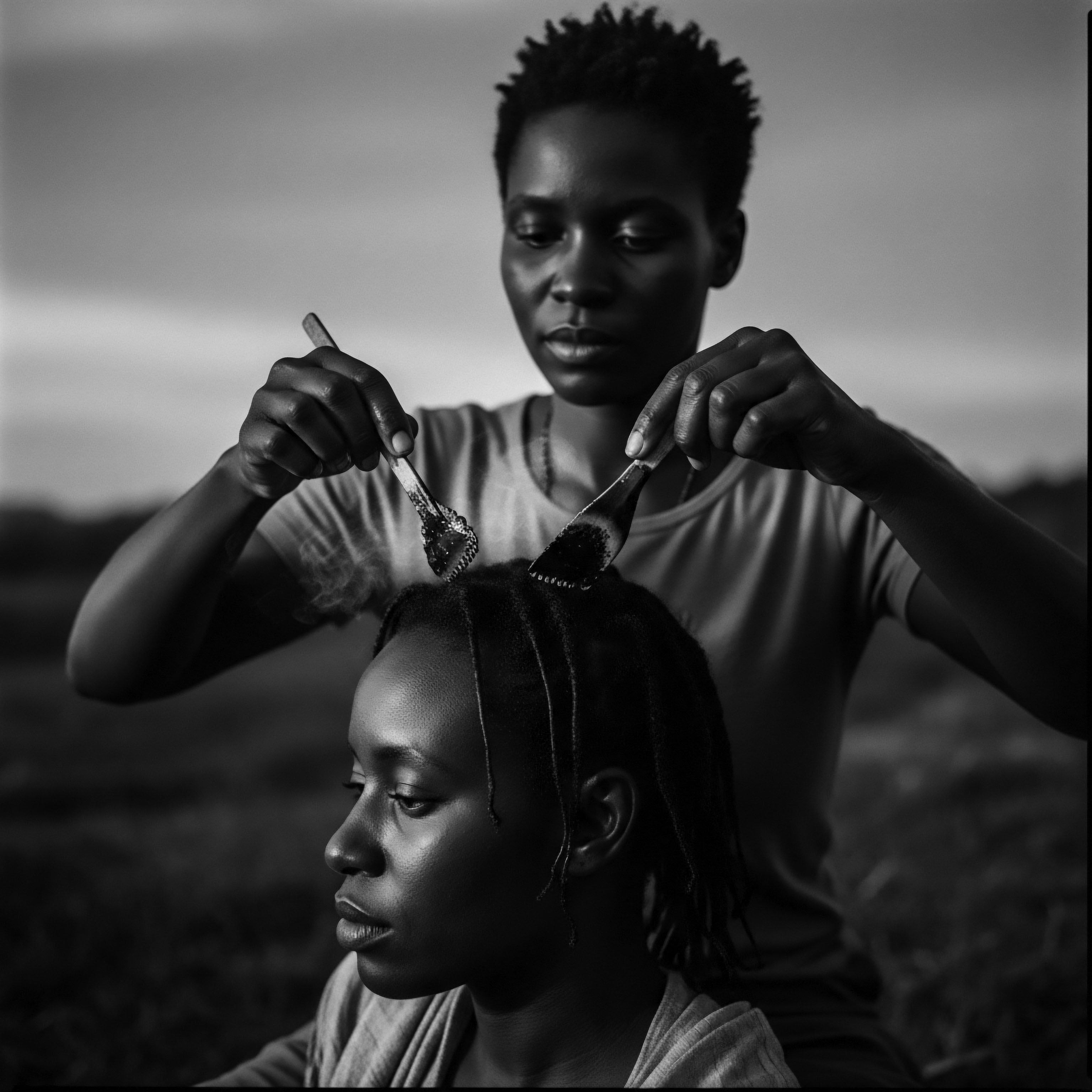
The Poro College as a Nexus of Black Empowerment
Poro College, established by Malone in St. Louis, Missouri, in 1918, stands as a critical academic case study in Black self-determination and community building. This institution was far more than a vocational school; it functioned as a multi-faceted hub, offering manufacturing facilities, retail spaces, dormitories, a 500-seat auditorium, and even a roof garden.
It served as a vital social and civic center for the African American community, hosting religious and social functions during an era when Black people were systematically excluded from public spaces. The college’s curriculum, extending to personal style, public speaking, and financial literacy, aimed to cultivate a holistic persona, preparing Black women not just for cosmetology but for leadership roles within their communities.
The impact of Poro College on Black women’s economic standing is particularly compelling. By 1920, Malone’s Poro Company employed an astonishing 75,000 agents nationally, a significant increase from the 25,000 agents reported in 1918. This statistic underscores the monumental scale of her impact on Black women’s economic agency and their ability to build wealth within their communities, all centered around the deeply personal and culturally significant act of hair care. These agents, predominantly Black women, gained not only financial independence but also social mobility and a sense of collective purpose.
They became conduits of information, spreading not just products but also knowledge about hair health and entrepreneurial skills across the diaspora. This economic network, built by and for Black women, operated as a counter-hegemonic force against the racialized capitalism of the time.
The success of Poro College also highlights the concept of “racial uplift,” a philosophy prevalent in Black communities during the early 20th century that stressed collective advancement through education, economic independence, and moral rectitude. Malone’s philanthropic endeavors, including substantial donations to historically Black colleges and universities (HBCUs) and the St. Louis Colored Orphans Home (later renamed the Annie Malone Children & Family Service Center), further solidify her role as a proponent of racial uplift. Her wealth, estimated at $14 million by 1924, was not merely for personal gain; it was strategically deployed to fortify Black institutions and support the broader Black community.

Ancestral Echoes in Hair Science and Practice
The explication of Annie Turnbo Malone’s methods reveals a deep, albeit intuitive, understanding of textured hair biology that resonates with ancestral practices. Before scientific instruments could fully map the elliptical cross-section and high curvature of Afro-textured hair follicles, or detail the unique disulfide bond patterns that grant its distinct coils, Black communities had developed intricate care rituals passed down through generations. These traditions often involved natural ingredients and gentle manipulation, prioritizing scalp health and moisture retention, practices that Malone’s formulations mirrored and modernized.
African hair, from ancient times, was never merely an aesthetic feature; it was a profound cultural signifier, conveying social status, age, marital status, tribal affiliation, and even spiritual connections. Enslavement sought to strip this identity, often by forcibly shaving heads, yet the resilience of ancestral hair practices persisted, adapting and evolving in the diaspora. Malone’s work, therefore, can be interpreted as a reclamation of this heritage, providing products that enabled Black women to care for their hair in ways that were both culturally affirming and physically beneficial. Her “Poro System” was a systematic approach to care that likely addressed the unique needs of textured hair, such as its propensity for dryness and breakage, which modern science now attributes to its structural properties and the way natural oils distribute along the coiled shaft.
Annie Turnbo Malone’s genius lay in her ability to synthesize ancestral wisdom with modern entrepreneurial strategies, creating a powerful blueprint for Black economic and cultural self-sufficiency through the medium of hair care.
The significance of her work is further underscored by the historical context of “good hair” versus “bad hair” narratives within the Black community, a dichotomy often influenced by Eurocentric beauty standards. While some of Malone’s products aimed to straighten hair, a common desire at the time for social acceptance, her emphasis on scalp health and hair growth offered a pathway to healthier hair regardless of styling choice. This nuanced approach acknowledged the realities of the era while still promoting overall hair wellness, a balance that speaks to the complex lived experiences of Black women.
The scholarly analysis of Malone’s legacy often positions her as a precursor to modern movements celebrating natural hair, even as her products also facilitated straightened styles. Her true innovation lay in recognizing and monetizing the unmet needs of Black women, creating a self-sustaining ecosystem that provided dignity, education, and economic opportunity through the culturally significant act of hair care. Her story serves as a testament to the power of indigenous knowledge and entrepreneurial spirit in challenging oppressive systems and fostering community well-being.
Consider the broader anthropological implications of her enterprise. The Poro College became a site of knowledge transmission, not only of cosmetic techniques but also of a shared cultural heritage related to hair. The communal act of hair care, historically performed within families and communities, found a new institutional expression in Poro salons and schools. This institutionalization helped preserve and adapt traditional knowledge, even as it integrated new scientific understandings of hair and scalp health.
The economic independence gained by Poro agents also translated into increased social capital and political agency for Black women, enabling them to contribute more fully to the broader civil rights struggles of their time. Her work represents a powerful instance of how cultural practices can be leveraged to build economic power and social resilience within marginalized groups.
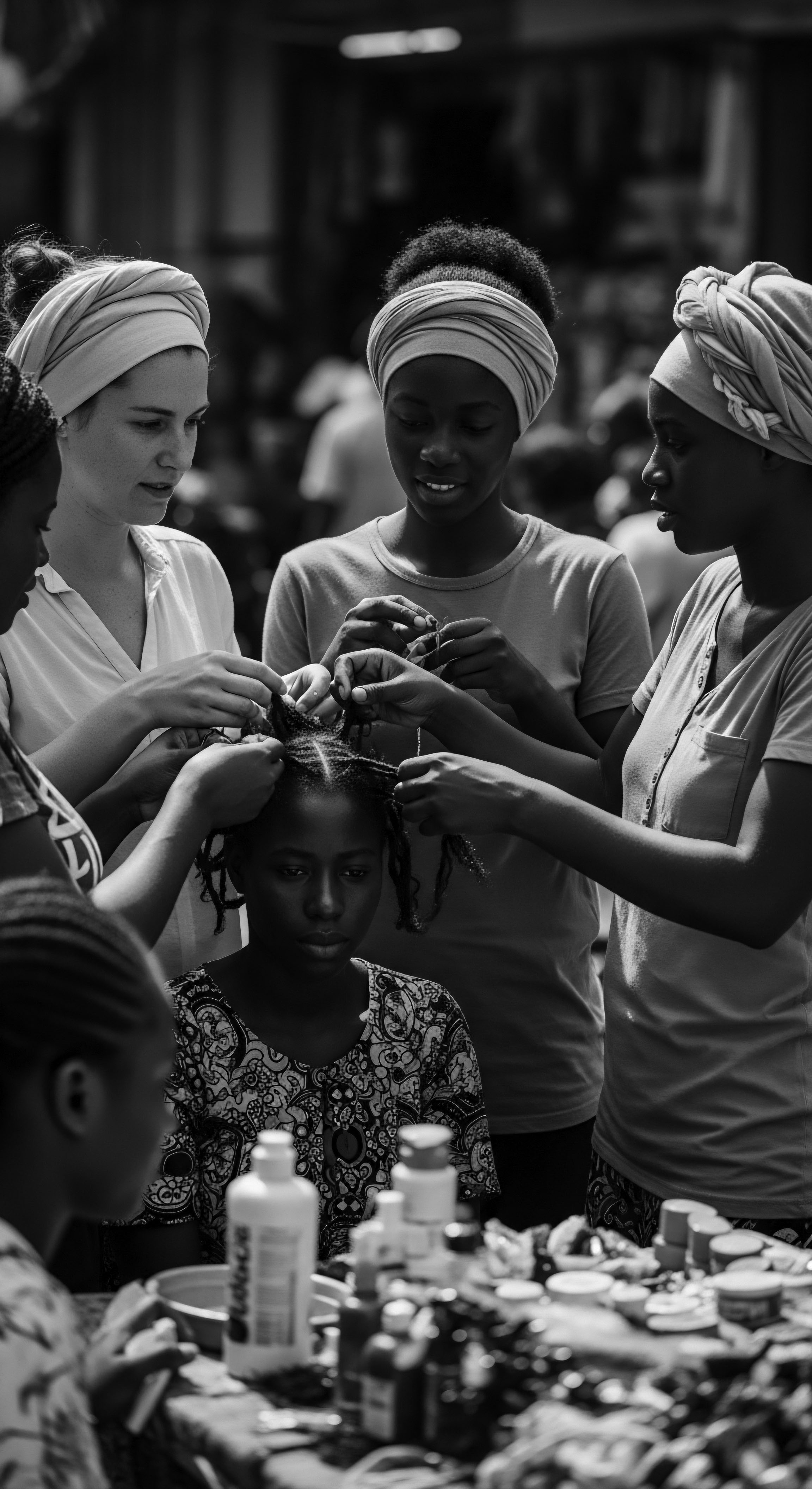
Reflection on the Heritage of Annie Turnbo Malone
The story of Annie Turnbo Malone, held within Roothea’s living library, resonates as a profound echo from the source, a testament to the enduring spirit of textured hair heritage. Her journey, from the quiet alchemy of early product creation to the expansive reach of the Poro empire, reveals more than a business success; it unveils a narrative woven with resilience, ingenuity, and a deep, abiding reverence for ancestral wisdom. She did not simply sell hair products; she cultivated a movement, a tender thread connecting generations through shared experiences of care and community.
Malone’s legacy reminds us that the strands we carry are not merely biological fibers; they are living archives, imbued with the stories of those who came before us. Her work acknowledged the elemental biology of textured hair, understanding its unique needs, and crafting solutions that honored its inherent beauty. This understanding, though perhaps not articulated in modern scientific terms during her era, aligned with ancient practices that recognized hair as a sacred extension of self, a conduit for identity and connection. The unyielding helix of our hair, in its myriad forms, found an advocate in Malone, someone who saw beyond societal impositions and recognized the boundless potential within each coil and curl.
Her vision extended beyond individual care, shaping futures and voicing identity on a collective scale. The economic opportunities she forged for thousands of Black women were not simply jobs; they were pathways to dignity, self-sufficiency, and the ability to contribute meaningfully to their families and communities. This holistic approach, where economic empowerment flowed from culturally attuned self-care, speaks volumes about the Soul of a Strand ethos.
It teaches us that true wellness encompasses not only the physical health of our hair but also the spiritual and communal nourishment that comes from honoring our heritage. Annie Turnbo Malone’s imprint remains, a vibrant inscription in the living library of textured hair, urging us to continue cherishing our unique stories and celebrating the profound beauty of our ancestral hair.
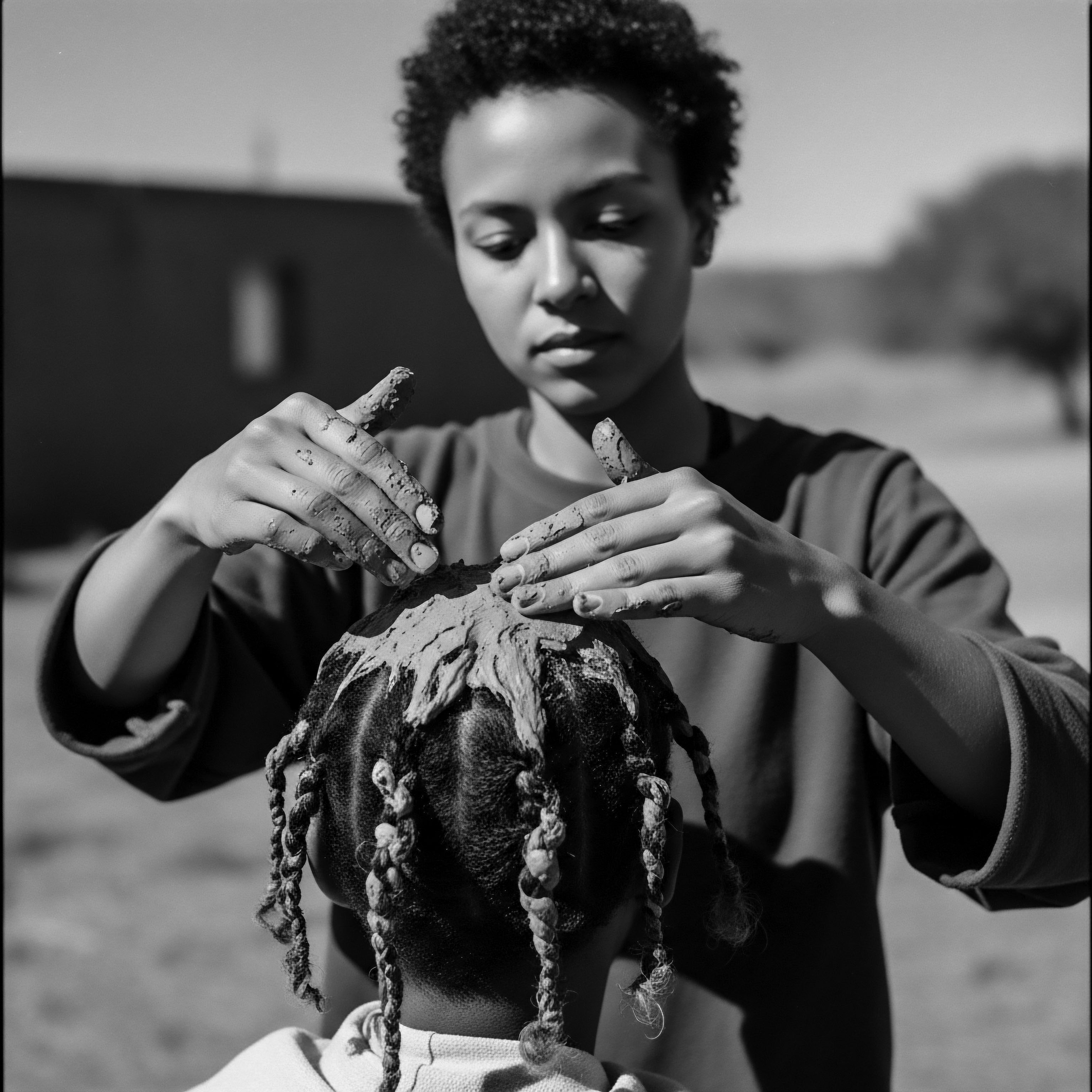
References
- Bundles, A. (2001). On Her Own Ground: The Life and Times of Madam C.J. Walker. Scribner.
- Catarevas, E. N. (2022). Wonderful Hair: The Beauty of Annie Turnbo Malone. Copper Beech Books.
- Gill, T. (2010). Beauty Shop Politics: African American Women’s Quest for Racial Uplift. University of Illinois Press.
- Peiss, K. (1998). Hope in a Jar: The Making of America’s Beauty Culture. Metropolitan Books.
- Spencer, D. A. (2009). The New Negroes and Their Music: The Showman, the New Woman, the New Negro. University of Tennessee Press.
- Walker, A. (2019). Madam C.J. Walker: The Woman Who Made Her Own Hair Care Empire. Capstone Press.
- Whitfield, J. H. (2007). “A Friend to All Mankind”: Mrs. Annie Turnbo Malone and Poro College. University of Illinois Press.
- Tyner, A. R. (2020). The Untold Story of Annie Turnbo Malone: Hair Care Millionaire (First But Forgotten). Independently published.

